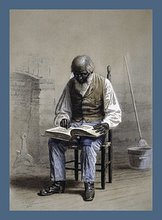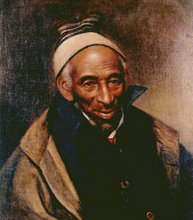From Civil Rights The 1960s Freedom Struggle by Rhoda Lois Blumberg, Twayne Publishers, Inc., 1991.
The year after the Watts riots, [Martin Luther] King was invited to Chicago by its black protest leadership. ...[including Jesse Jackson]
On 26 January 1966, King and his family took up temporary residence in Chicago's Lawndale ghetto area. Southern experience would prove to be insufficient preparation for this crucially different northern campaign. ... Demonstrations brought out unexpectedly vicious white mobs that somtimes numbered in the thousands, and black urban dwellers were in a mood to retaliate. Their anger had been recognized and articulated by Malcom X: similar grievances had been given violent expression in the Watts riot. Support could not be expected from the Democratic Administration because of both King's anti-Vietnam stand and Mayor Daley's power in the party. As a big-city boss, Daley knew how to use his power of patronage to buy off key black politicians. (p. 174)
The atmosphere conducive to nonviolent protest had changed... [citing David Levering Lewis, King, A Biography (1978):
"Even if the Vietnam issue had not strained relations to the breaking point, there was virtually no possibility of White House assistance in Chicago. The political power of the Daley machine within the Democratic Party, the socio-economic thrust, as opposed to the former legalistic, of the SCLC's Northern campaign, the complex interrelationships of Eastern finance, Midwestern industry and labor, and federal power--all these constituted built-in restraints upon pro-civil rights intervention by Washington outside the South.... Meanwhile, in Congress legislation was introduced to curtail civil rights demonstrations by Representative Roman Pucinski, an Illinois Democrat and formerly a consistent support of civil rights legislation."
... Civil rights forces felt that 1966 was a crucial year in which they needed to counter the rising black power mood. King focused on housing discrimination in its various forms: exploitative slum housing and de facto segregation created in collusion with real estate interests. ... (p. 175)
As the civil rights forces drew attention to the problems of slum dwellers, Daley countered with his own expressions of concern about the issue. He met with the civil rights delegations, assuring them of good intentions. On the same day, 26 May 1966, that King announced plans for a march on city hall, Daley was able to announce the successful negotiation of a fedeal loan for housing renovation. The significance of the day for civil rights forces was heightened by another tragedy. Jerome Huey, a 17-year-old black youth, was beaten to death on a streetcorner by four white youths in the de facto segregated suburb of Cicero. This was the kind of hateful incident that had galvanized thousands in the South, and the Chicago movement intended to utilize it. ... (p. 176)
1966 became a riot summer in the city. A police-related incident eventuated in a major three-day conflagation. The rivalry between nonviolence and other forms of black revolt was heightening, as was white backlash. The racism of northern white citizens became more overt as they gathered in huge numbers to threaten and jeer nonviolent demonstrators. At an Agusut rally in Marquette Park, King was stunned by a rock thrown at him, and only the police presence held back mobs ready to kill. Racism was virulent in Chicago, but unlike southern officials, Daley and Chicago dignitaries continued to meet with King and his CCCO allies. (page 177)"
The Cicero march took place, in response, but without King's participation... Major concessions had been promised by Mayor "I don't want to buy the black vote, I just want to rent it for a day" Daley. But later Daley backed out of these concessions. Said King: "I look back over it and wish we'd gone to Cicero."
In short, at Cicero, Ill., the civil rights movement met defeat. The attempt to take on the issue of housing--bad housing not fit for human habitation and segregated housing--met with defeat. The liberal New York Times editorialized that Martin Luther King should withdraw from the North; liberal funds dried up for SCLC.
Sunday, February 05, 2006
Subscribe to:
Post Comments (Atom)



No comments:
Post a Comment